Loading...
In less than 2% of the world's land area, Central America is home to 12% of the world's flora and fauna, while the Caribbean islands are important sanctuaries for unique species found nowhere else on Earth.
Each plant, every animal, and each ecosystem tell a story of survival and adaptation that is intertwined with the lives of its inhabitants.
Increasingly prolonged and intense droughts, hurricanes of unprecedented magnitude, and profound ecosystem disruptions that threaten their delicate balance.


Its consequences threaten food security, access to water, public health, and the livelihoods of millions of people throughout the region. Among those most affected by this crisis are women, youth, indigenous peoples, and communities at risk of natural disasters.
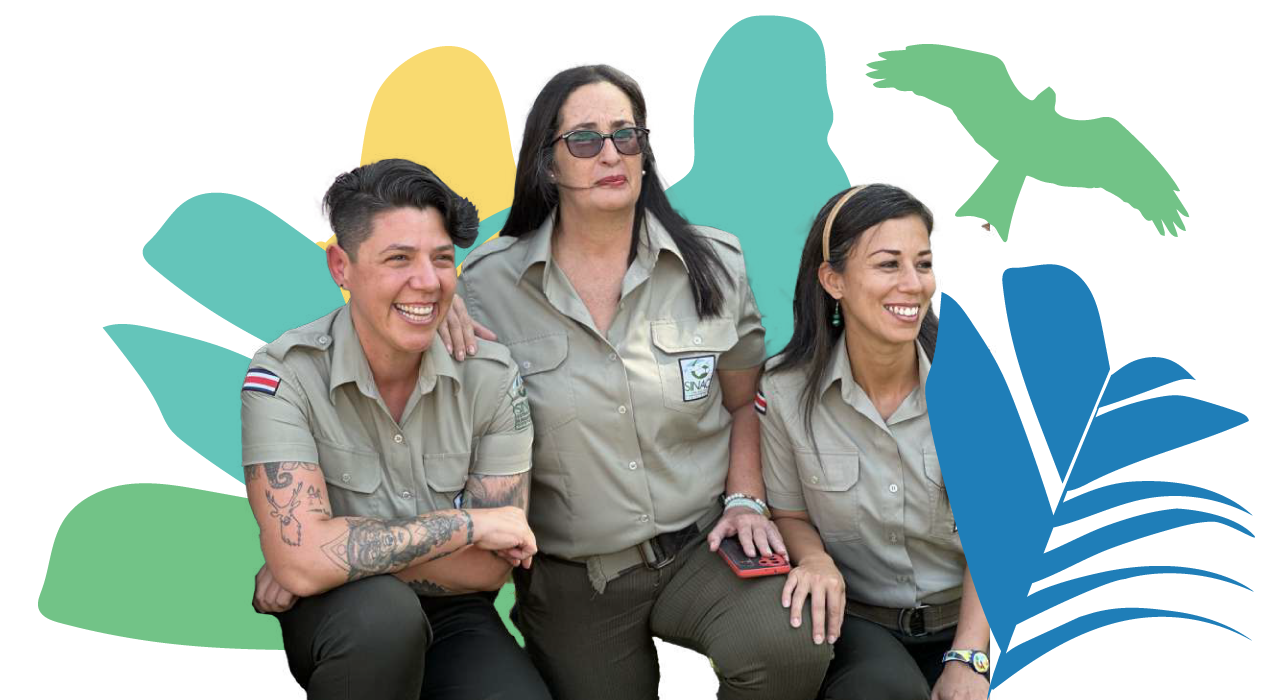
However, the region also possesses an invaluable resource: it’s people. Across the region, stories of hope, innovation, and resilience continue to emerge.
Join our protagonists and discover how they have forged new paths toward a sustainable and resilient future.
Women Ranchers Carving Their Own Path
COSTA RICA
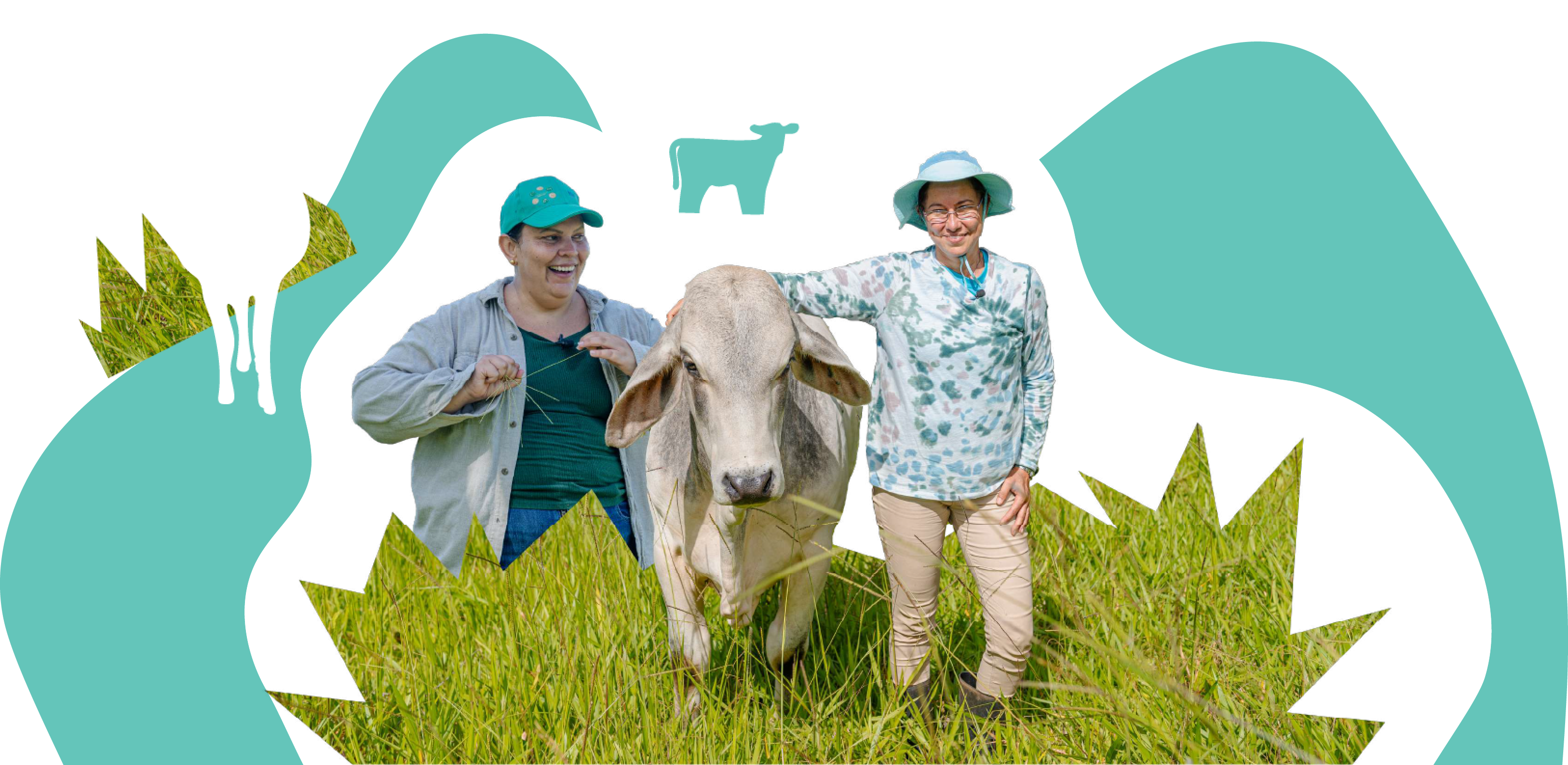
Their efforts to integrate sustainable practices into livestock farming make them key agents in tackling climate challenges.
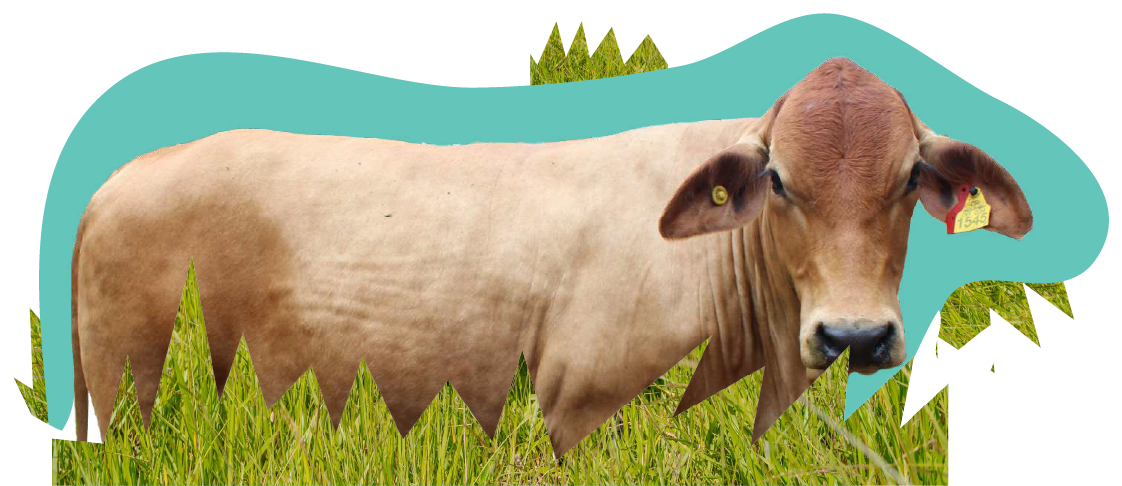

Their dedication is a testament to unstoppable strength. However, like many women in this sector, they face challenges that make it difficult to adopt the sustainable practices that could transform their communities and environment. Despite these barriers, their commitment remains steadfast, guided by the hope of a fairer, greener future.
"My father used to value our work at half that of a man’s, and that made me uncomfortable."
Jessenia Castillo
Woman Rancher from San Vito, Costa Rica
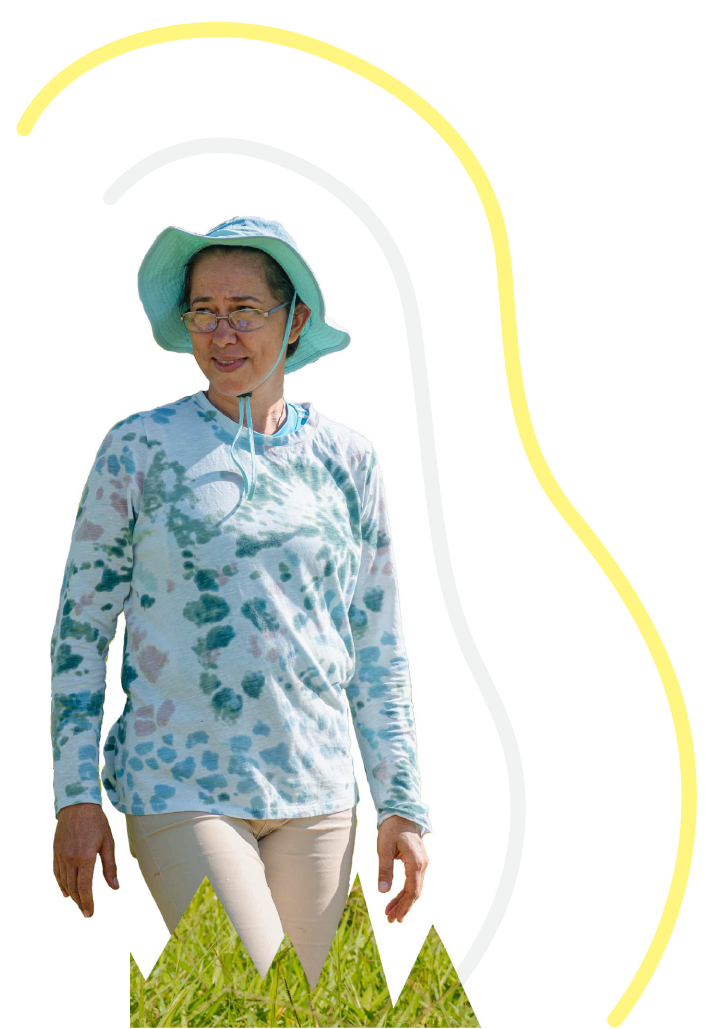
Limited access to land and financing restricts their ability to make decisions and access financial opportunities.
They are often perceived as less physically capable of handling demanding tasks in the field – a view that hinders their full participation and reduces opportunities for their valuable contributions to be recognized.
Many of them also take on domestic chores at home, further complicating their development in the livestock sector.
Women’s limited presence in decision-making spaces restricts their power to influence policies and programs that directly impact their work, which excludes them from processes that could transform their reality.
To achieve this, a diagnostic was conducted, and a three-year action plan was designed to promote meaningful change toward gender equality and foster sustainable development in the livestock sector.
Their voices and participation were key in building a deep and authentic understanding of their reality, highlighting their role as agents of change in the livestock sector, as well as their contributions to sustainable development.
It is necessary to ensure better conditions for women ranchers to access land, credit, resources, and training, allowing them to fully exercise their rights. The information generated by the analysis feeds into dialogue spaces with the government, aiming to jointly build inclusive, comprehensive, and egalitarian development for both men and women in the agricultural and rural sector.
Andrea Padilla
Assistant Representative of Programs at FAO in Costa Rica
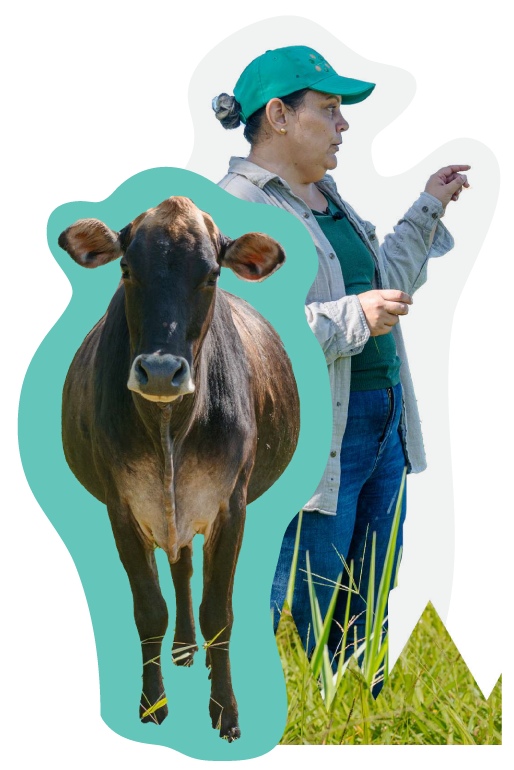
As a woman, I have no obstacles. None. Only limitations in the economic sense.
Carla González Moreno
Woman Rancher, Nandayure, Northern Region
Their story, along
with that of many other women,
demonstrates that empowerment and
gender equality are essential to
building a fairer and more prosperous
future for Costa Rica's livestock sector.
Guaranteeing equitable access to land ownership, active participation in decision-making, fair economic compensation, and better participation conditions in the sector are key steps to promoting equal opportunity. Fostering these actions will not only empower women ranchers but will also strengthen the social and economic fabric of rural communities.
Sandra Sosa
Resident Representative of UNDP
Their dedication, resilience, and commitment are an inspiration to build a fairer, more inclusive, and environmentally responsible future.
SCALA is a project co-financed by the International Climate Initiative (IKI) of Germany.
Sources:
Photographs:
© FAO-PNUD, 2023. All photographs used in this document are the property of FAO-PNUD and were produced as part of the SCALA project. The use of these images requires the express permission of the mentioned organizations

Empowering Women in the Refrigeration Sector
GRENADA
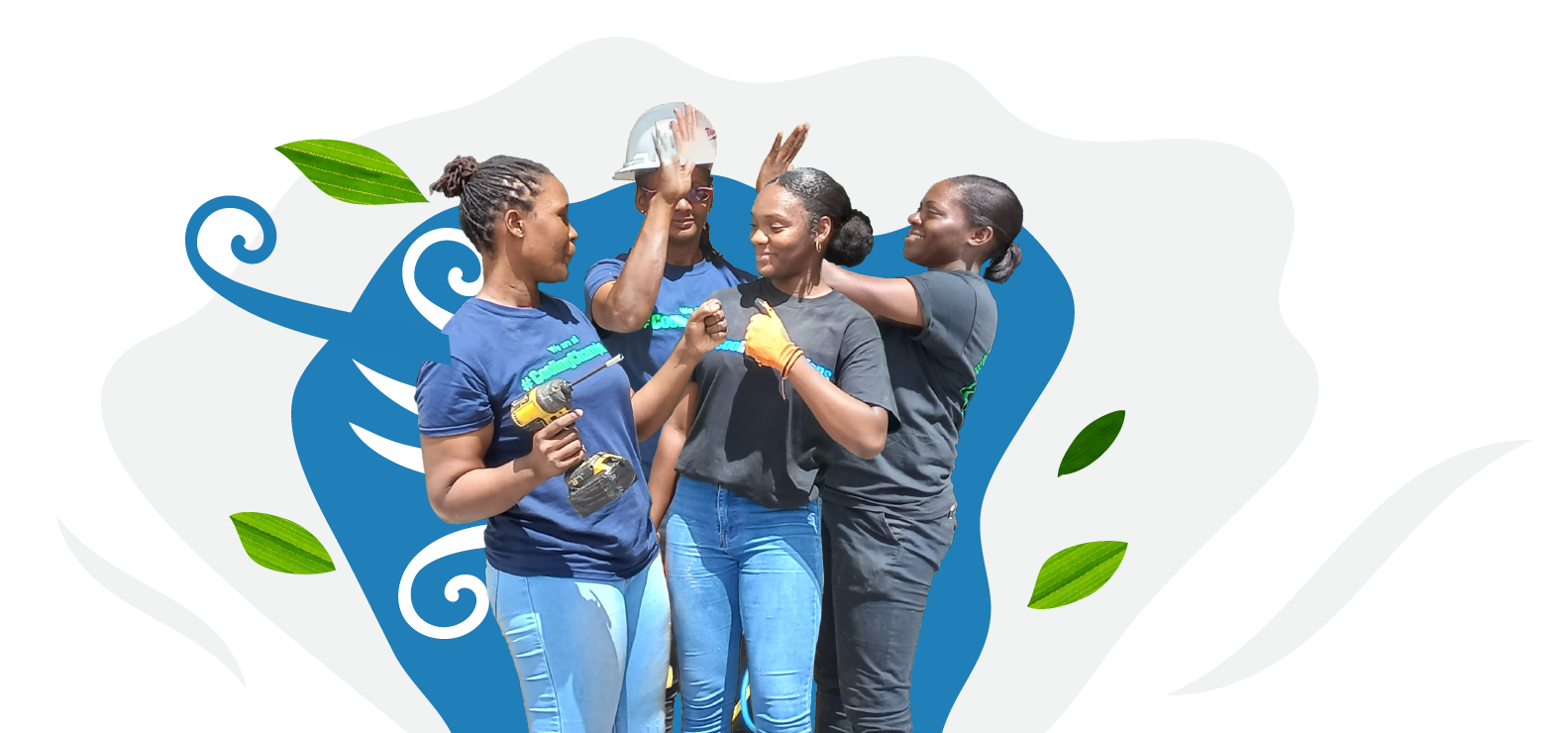
As temperatures rise, the demand for sustainable refrigeration and air conditioning becomes a critical adaptation strategy against climate change.
While the demand for cooling expertise grows, Grenada's refrigeration and air conditioning (RAC) sector has historically been male-dominated, with women representing only 3% of the workforce in 2018.
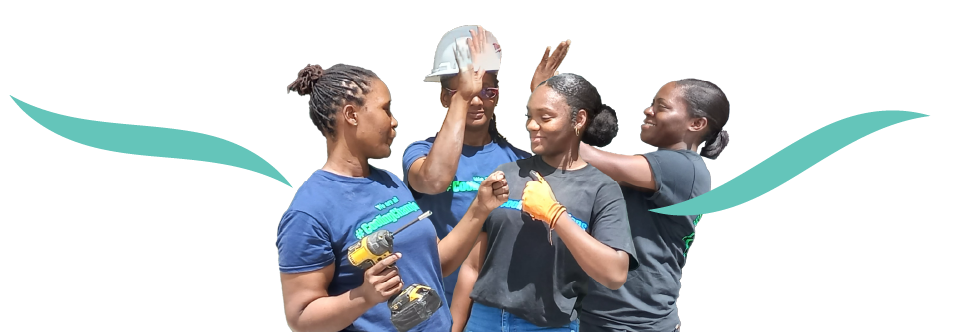
Through the initiative “Women in Refrigeration and Air Conditioning in Grenada”, female RAC technicians are trained in the safe and efficient use of natural refrigerants. The program, led by the GIZ-implemented and IKI-financed project Cool Contributions Fighting Climate Change II (C4II), advocates for greater participation, leadership, and empowerment of women in this traditionally male-dominated industry.
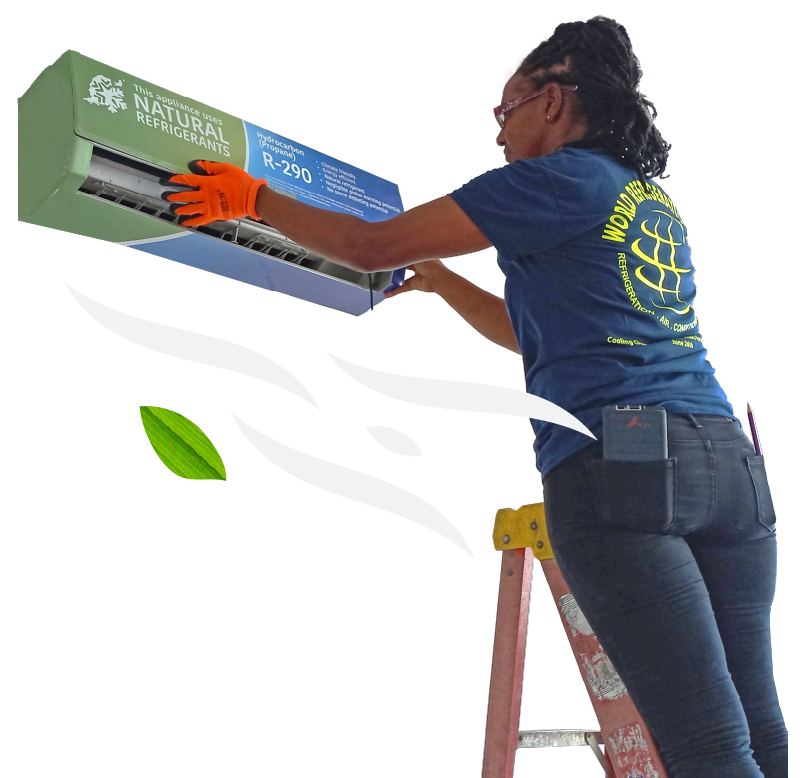
By 2024, the Women in RAC network has grown to include 8 female trainers committed to empowering more women with the skills required for the safe use of natural refrigerants.
Globally, C4 II initiative has supported these 8 female trainers through 10 technical Train-the-Trainer sessions and engaged 251 women in various networking and training events.
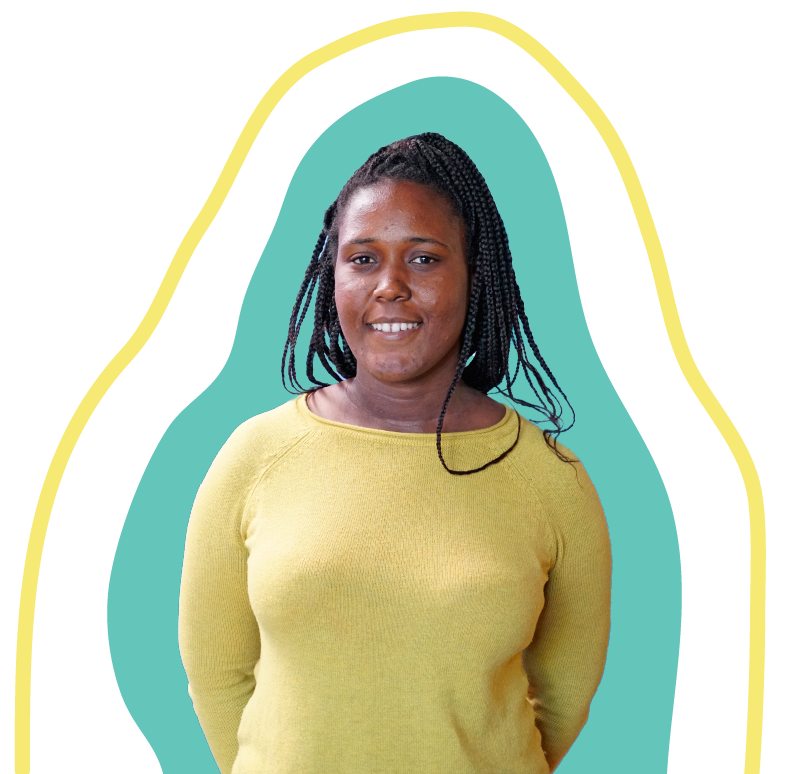
She participated in the Cool Training in Germany, where she learned
about the safe use of natural refrigerants, such as propane (R-290), which are eco-friendly and efficient
alternatives to traditional options.
This experience not only enhanced her technical skills but
also connected her with other women in the field, strengthening a supportive and collaborative
network.
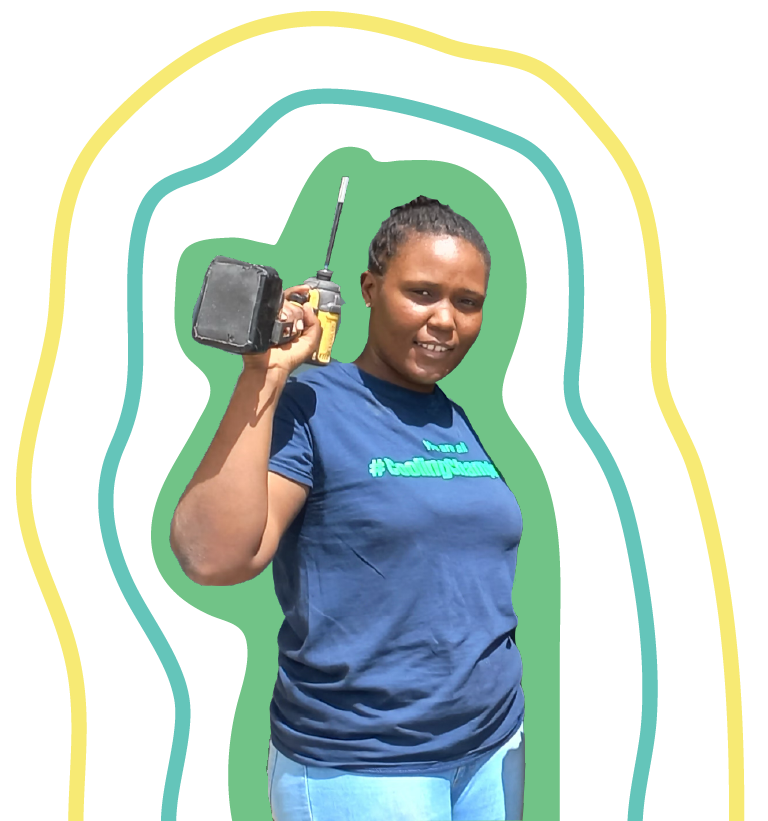
It's good that younger generations can see that females are capable of doing anything, really and truly, as long as you put your mind to it, and as long as you have a passion for it, nothing is impossible.
Marah St. John
installing an R-290 air conditioning unit in the office of Minister of Climate Resilience, Environment and Renewable Energy, Hon. Minister Kerryne James. Working alongside Angela, Carlinda, and Akelsha, Marah showed how collaboration and technical skills can achieve great results while breaking stereotypes in the refrigeration and air conditioning industry.
Every installation we make is a step toward a greener future.
We have the capacity in having much more females involved in getting into these non-traditional roles and this career path, so we have to make sure that we lead by example as small island.
Hon. Kerryne James
Minister of Climate Resilience, Environment and Renewable Energy in Grenada
Cool Contributions fighting Climate Change II (C4 II)
C4 II is financed by the German government's International Climate Initiative (IKI).
Sources:
Videos:
Photos:
Indigenous Tourism from Within
COSTA RICA
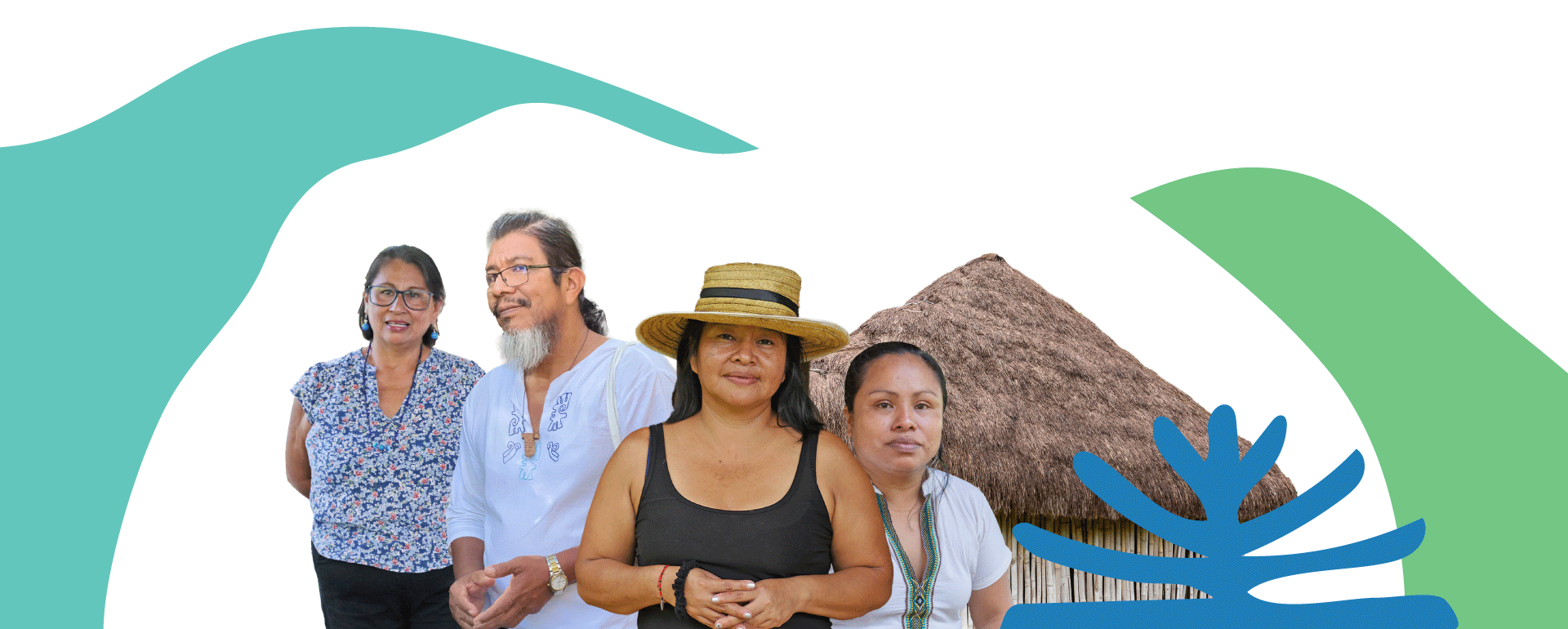
Their
territories protect sacred sites and vital resources for their culture, identity, and subsistence,
reflecting their deep connection with nature.
The relationship these communities have with their environment is not only reflected in their
worldview and sustainable practices but also in their role as guardians of vast areas of national
territory.
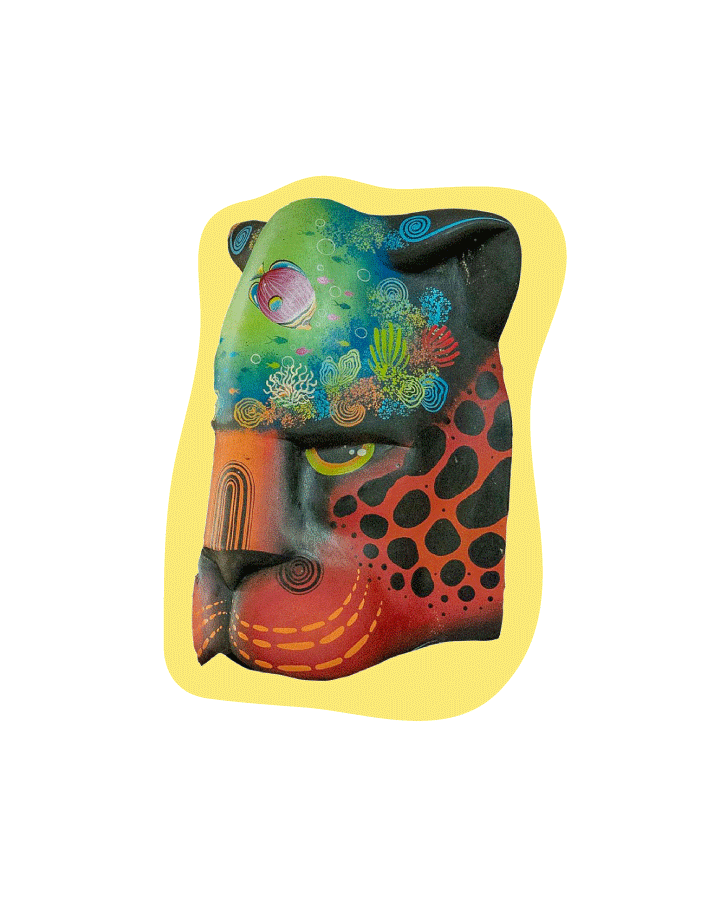
Furthermore, these territories include a significant portion of the
country's essential ecosystems, such as:
16% of rainforests.
15% of wetlands.
5% of mangroves.
3,2% of nesting beaches for sea turtles.
3,1% of seagrass meadows.
2,9% of páramo forests.
1% of coral reefs.
Approximately 70% of indigenous households live in vulnerable conditions, with significant deficiencies in fundamental needs, such as health, education, and housing.
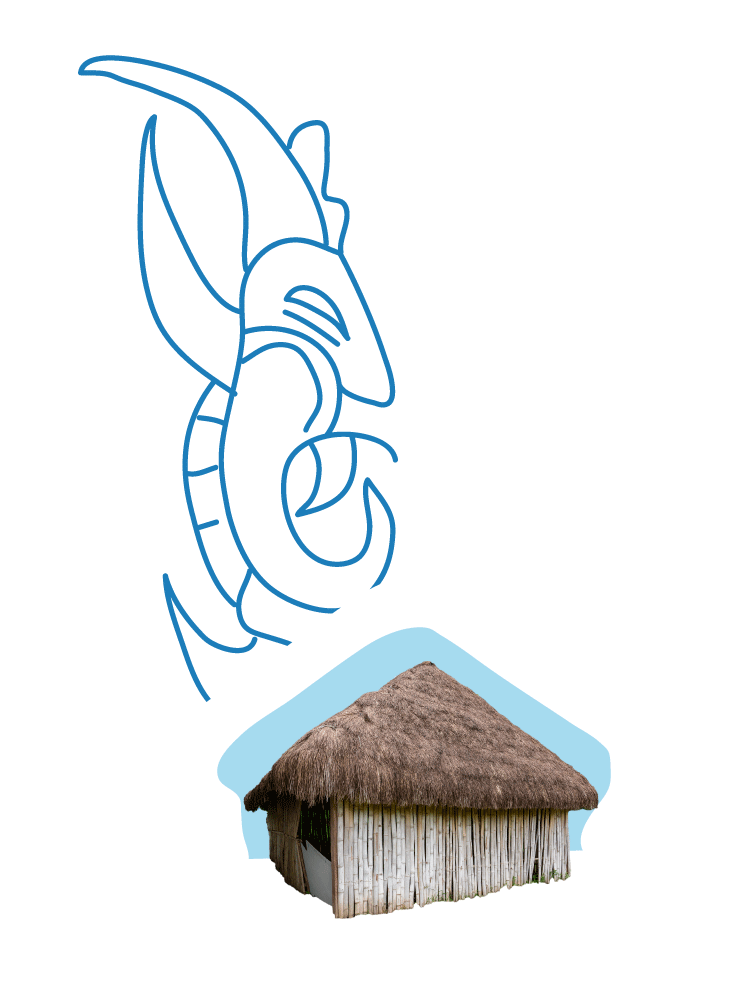
This was formalized in Goal 63 of the National Biodiversity Strategy, which aims to promote the economic and productive development of indigenous territories through tourism activities linked to biodiversity.
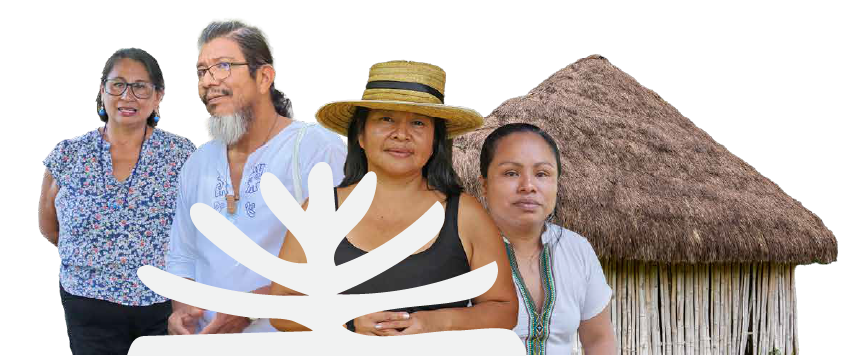
They are part of the first and second generations of the Raíces program and engage in ecotourism as a means of their livelihood, nature conservation, and protecting the cultural identity of indigenous territories.
Raíces is a financial mechanism that promotes sustainable tourism in
indigenous territories by supporting business ideas and turning them into tourism enterprises.
driving a tourism model that is economically viable and environmentally sustainable, and places indigenous communities at the forefront of their own development.
Raíces, for me, is an opportunity to fulfill a lifelong dream of growing as an entrepreneur, especially in tourism, but with a vision that is deeply important to me – the perspective of indigenous communities.
Doris Ríos Ríos
Indigenous woman from the Cabécar China-Kichá Territory
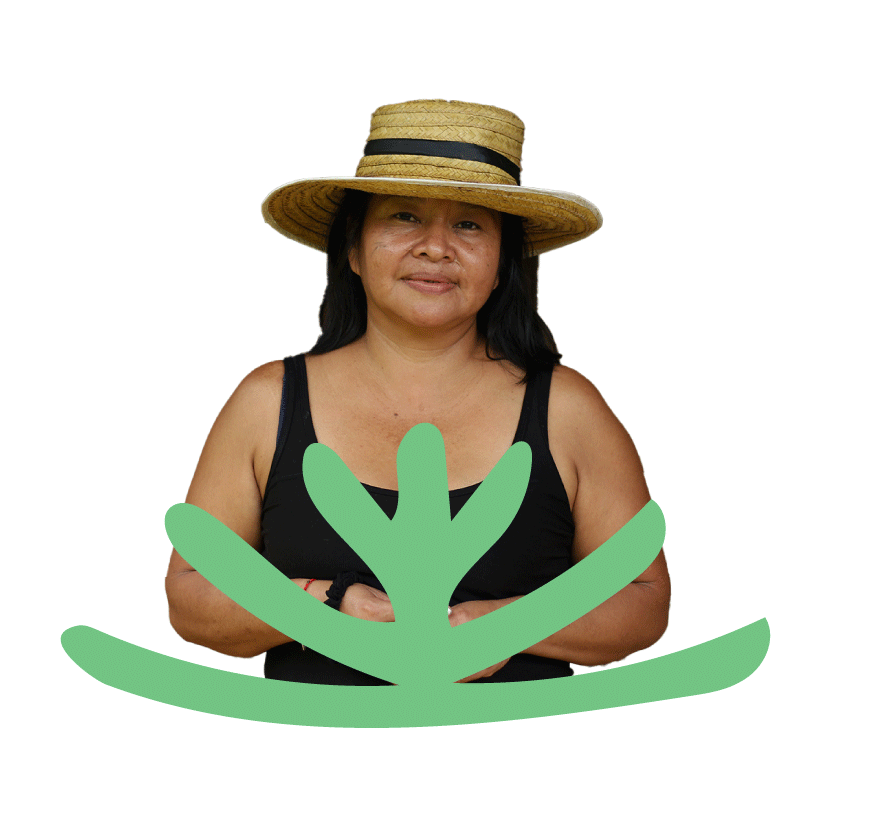
Built by Our Territories
Doris Ríos Ríos
Indigenous woman from the Cabécar China-Kichá Territory
“The program has had a positive impact on the community by creating jobs and promoting collaboration among local producers.
This not only encourages the consumption of local products but also provides opportunities for young people and women who are unemployed.”
Elides Rivera Navas
Indigenous woman from the Térraba Territory
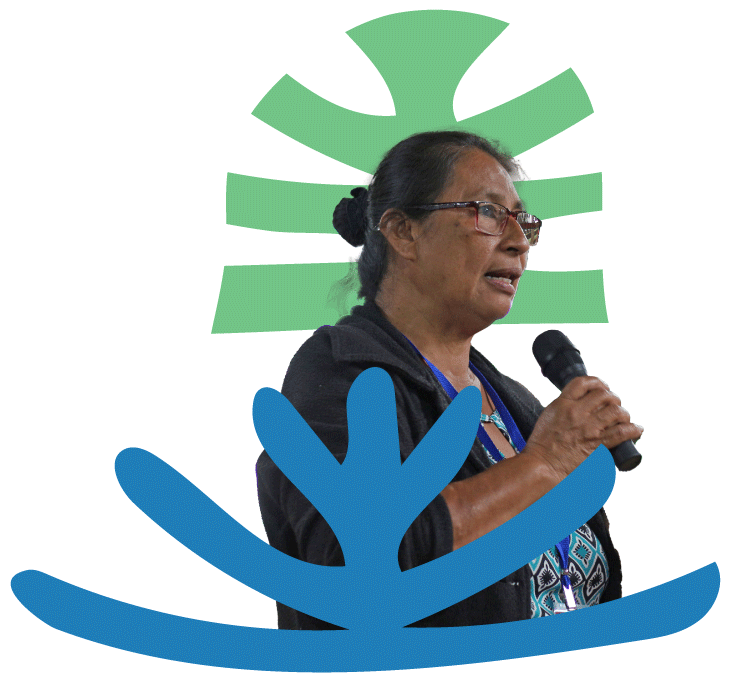
“The program has had a positive impact on the community by creating jobs and promoting collaboration among local producers. This not only encourages the consumption of local products but also provides opportunities for young people and women who are unemployed.”
Johanna Lázaro Morales
Cáu^shá^s Farm Boruca
Indigenous woman from the Boruca Territory
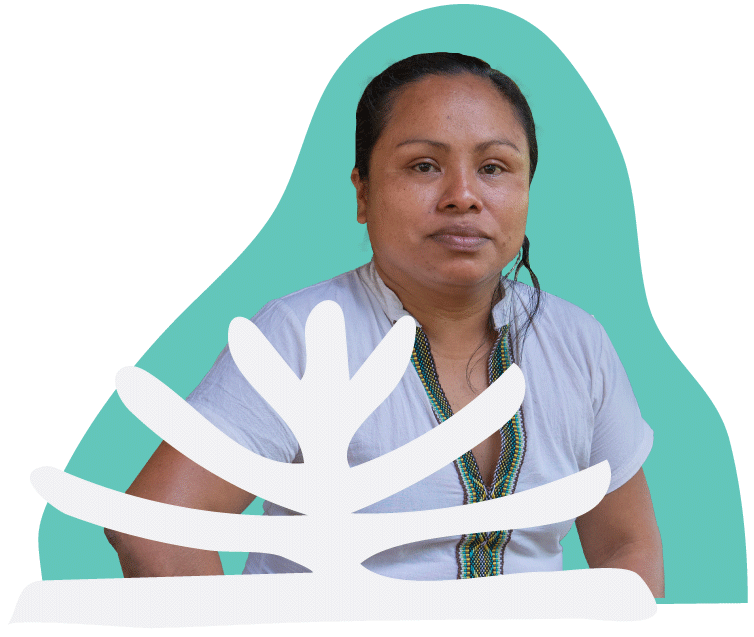
He decided to take action to restore the forest, and as it recovered, the idea of organizing hikes and creating a space for ecological and cultural tourism emerged.
Paulino Nájera Rivera
Ecological Cultural Corner of the Térraba Indigenous Territory
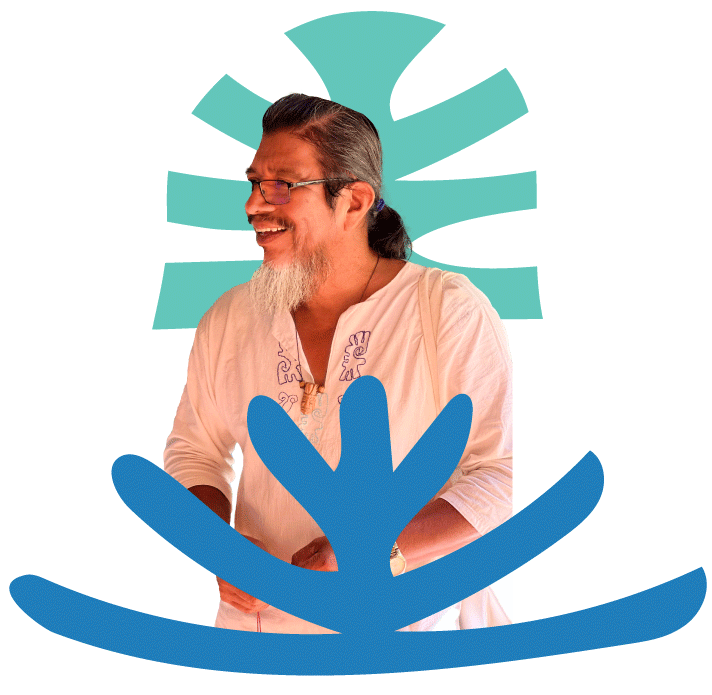
Raíces came to strengthen my dreams
Paulino Nájera Rivera
Ecological Cultural Corner of the
Térraba Indigenous Territory
Raíces empowers indigenous entrepreneurs
with training, funding, and technical support, strengthening their projects and opening doors to
ecotourism.
Raíces is a project co-financed by the International Climate Initiative (IKI) of the German Government, with support from the European Commission and the Governments of Germany, Switzerland, Norway, Flanders, Belgium, Canada, the United Kingdom, and France.
Sources:
Photos:

A Future That Flows
GRENADA
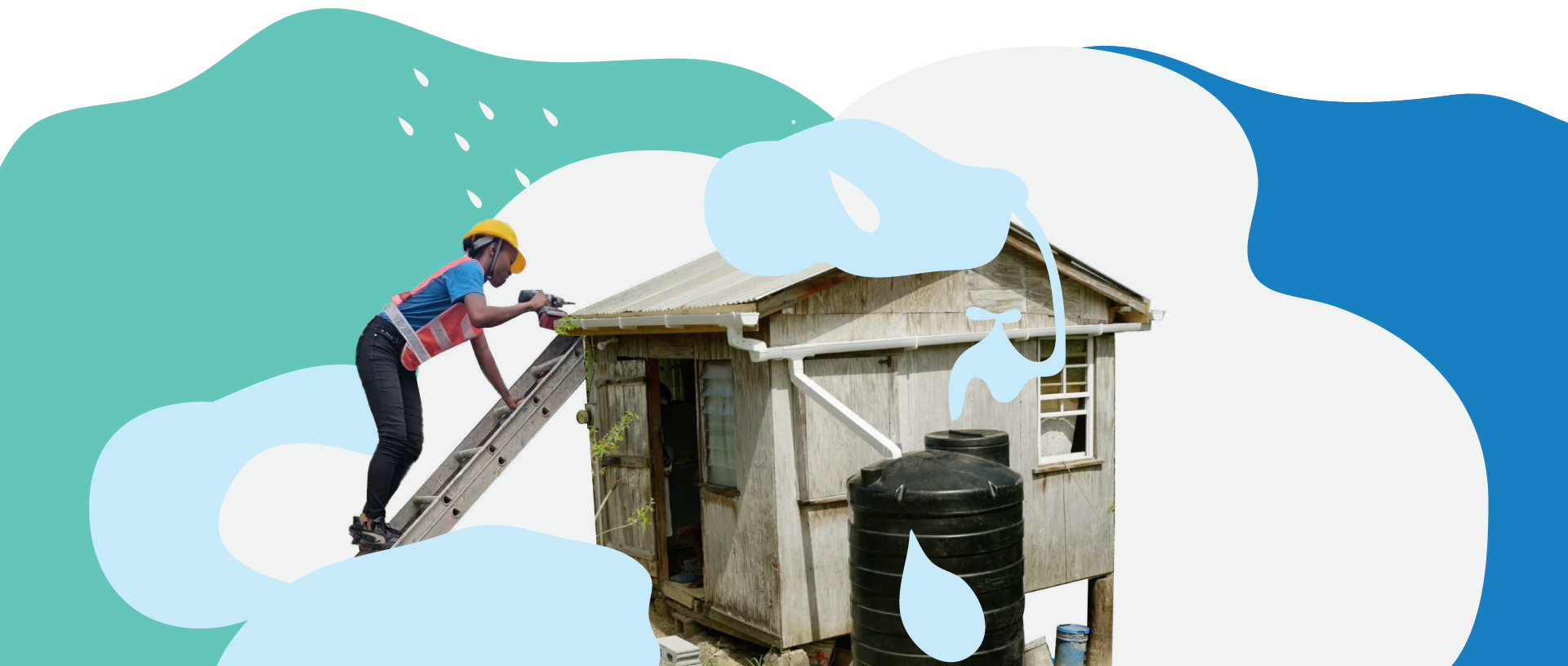
Reduced rainfall and rising temperatures are expected to increase the risk of water shortages and prolonged droughts in the coming years.
The remaining 10-15% is sourced from
groundwater, which is threatened by saltwater intrusion due to rising sea levels.
These, combined with saltwater intrusion, are exacerbating the water scarcity issues already intensified by climate change.
The consequences of water scarcity are particularly severe for young people, who will face long-term challenges in accessing clean and reliable water.
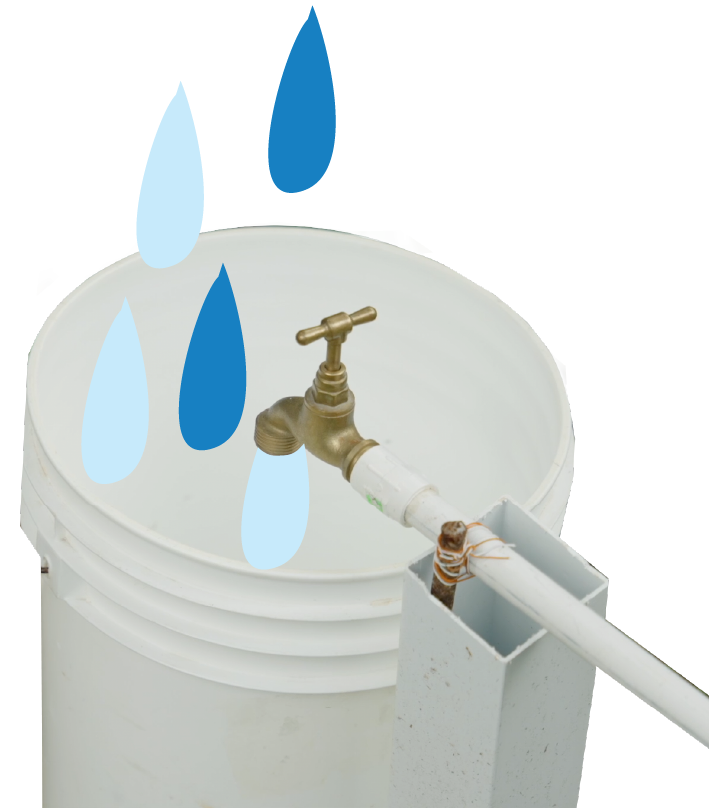
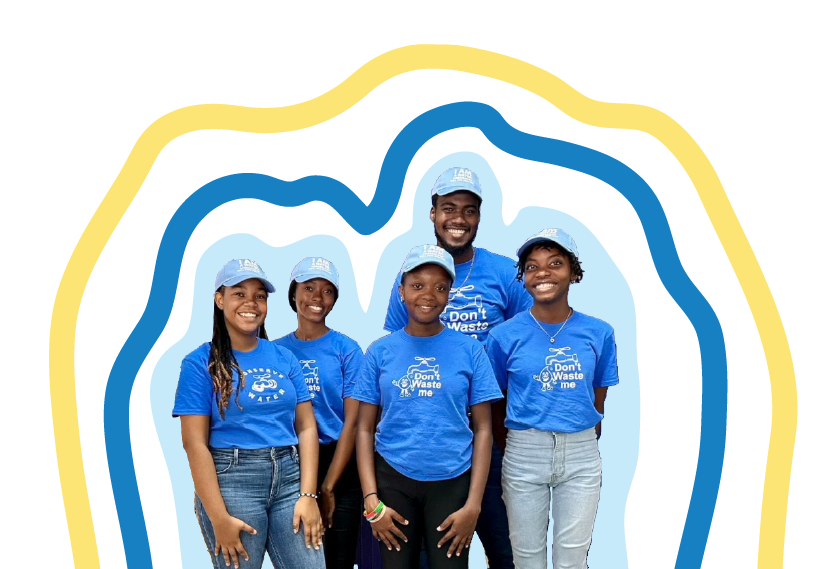
Important support is provided by the IKI project Climate-Resilient Water Sector in Grenada (G-CREWS) through its innovative Water Ambassador program (GWAP).

As a Water Ambassador, she is dedicated to addressing the challenges
posed by climate change on her country’s water resources.
During a comprehensive training program, she gained invaluable insights into the intricate
relationship between climate change and water availability.
She focused on practical solutions, such as designing rainwater harvesting systems that balance demand and supply, while considering factors like household needs and roof area.
Cavonna experienced significant personal growth, building
confidence and fostering a deeper connection to the real-world impact of water conservation.
Seeing how her work could change lives gave her a new sense of purpose and a stronger
commitment to sustainability.
“Initially I was kind of shy going into the field but as I continue going out and interacting with the persons, understanding their situations, how they deal with water. It was different from my own story. You see some persons, they don't have access to water at all, and some depend on outdoor taps…I could have resonated with them...so I really enjoyed going out and learning their stories and being able to help them at the end of the day.”
Cavonna Baptiste
Water Ambassador
Cavonna and and young Grenadians like her are driving modern, digitized solutions to improve water management, decision-making, and ensure sustainable access to clean water for all.
Through the GWAP program, the Water Ambassadors made meaningful progress in enhancing water access and building resilience in vulnerable communities.
“We engaged directly with communities, conducted surveys, and considered household vulnerabilities to guide our efforts.”
Cavonna Baptiste
Water Ambassador
A key achievement of the program has been building resilience among vulnerable communities: Five households have been equipped with rainwater harvesting systems and 400-gallon tanks, ensuring 3–5 days of backup water during supply disruptions.
In collaboration with the community and a local artist, they designed and created a powerful mural that promotes efficient water use. This artwork captures the community's vision and reflects a collective commitment to sustainability.
"Water insecurity is a reality,
let's face it with positivity!
Make rainwater harvesting, storing and saving your
responsibility!"
The Water Ambassadors program empowers young leaders like Cavonna to drive change, promoting water conservation and raising awareness about climate change.
Granada's Youth
Tackling the Water Crisis.
G-CREWS | Instagram, Facebook | Linktree
Climate-Resilient Water Sector in Grenada (G-CREWS) – Climate Resilience Portal
G-CREWS: Sector hídrico resiliente en Granada
G-CREWS is jointly financed by the Green Climate Fund (GCF) and the German Federal Ministry for the Environment, Nature Conservation, Nuclear Safety and Consumer Protection (BMUV) under its International Climate Initiative (IKI) and the Government of Grenada.
Sources:
Photos:

Women Sowing a Better Future
DOMINICAN REPUBLIC

Rising temperatures and ocean acidification endanger its biodiversity and vital balance.
“Before, we had a great variety of plants and trees; today, many of them have disappeared. I miss having them here.”
Wendy Jáquez
Dominican Republic
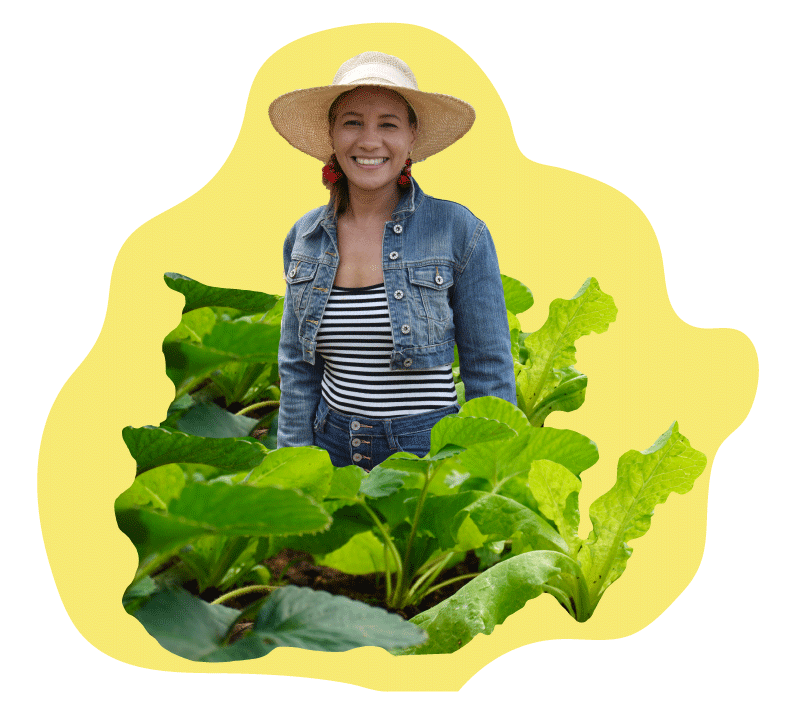
With the support of the Resilient Caribbean Communities (CCR) project, Wendy transformed her land into a productive ecosystem.
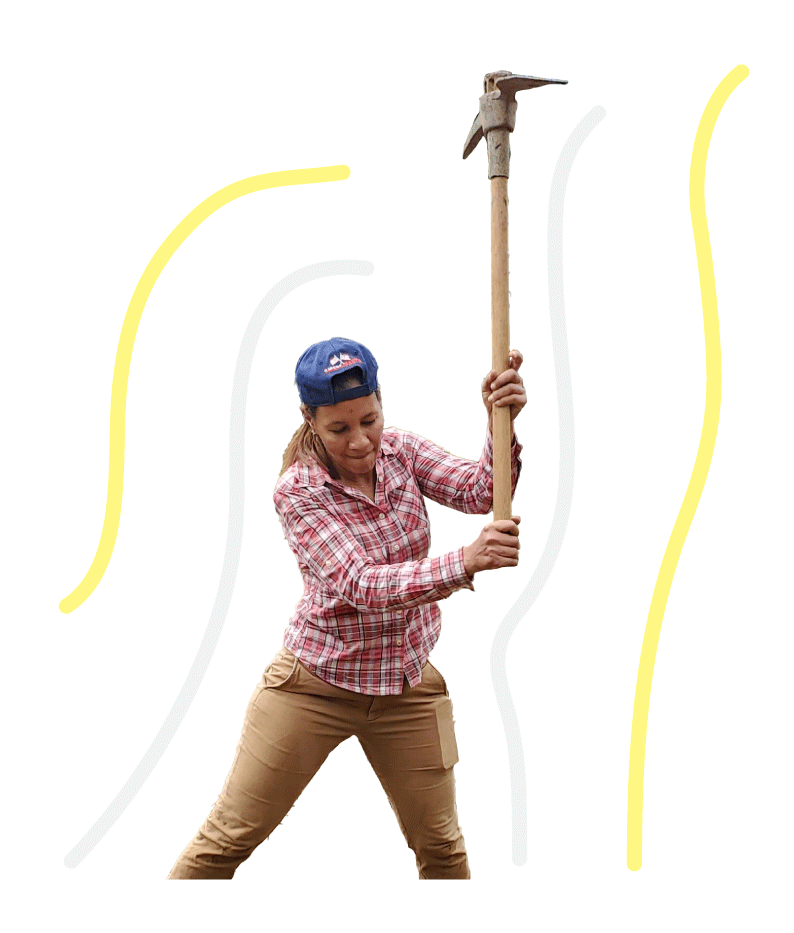
Through an agroforestry system that combines
plantain crops with cacao trees, Wendy has managed to regenerate the
soil, improve water retention, prevent erosion, and increase biodiversity.
These techniques strengthen climate change adaptation, mitigate extreme climate risks, and provide
long-term benefits by acting as carbon sinks.
Integrating ecosystem conservation, food security, and climate change adaptation, strengthens both the communities’ resilience and their long-term sustainability.
The CCR project promotes gender equality as an essential foundation for climate adaptation. Through participatory diagnostics and hands-on workshops, it seeks to strengthen both men’s and women’ capabilities, fostering equitable collaboration that paves the way for female leadership in roles traditionally dominated by men.
Thanks to the training workshops, she was able to establish more equitable power dynamics within her family, becoming a leader in sustainable agriculture and climate adaptation.
We have learned that if we do not treat the forest as our enemy, but instead manage it well, we will have greater biodiversity and more fertile soils. This also contributes to more stable food security. Before, we could only harvest once a year. Now, thanks to our new home gardens, we have lettuce, onions, chard, peppers, and cabbage all year round.
Wendy Jáquez
Dominican Republic
Back to cooperating with nature.
CCR is a project funded by the International Climate Initiative (IKI) of the German government.
Sources:
Photos:

Walking the Path to Equity
COSTA RICA
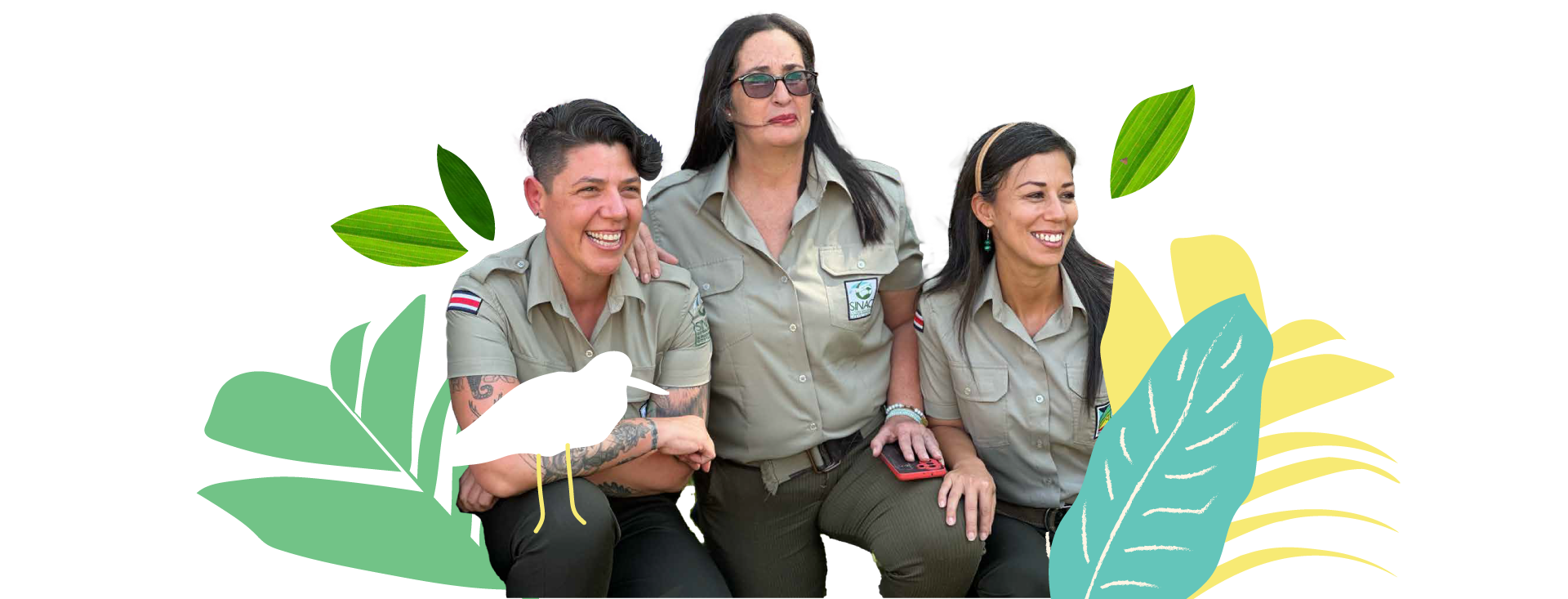
More than 25% of the country’s landmass falls under some form of Protected Wildlife Area (ASP, from its acronym in Spanish), preserving vital ecosystems that are home to 6.5% of the world’s biodiversity.
In 2023, only 33% of National System of Conservation Areas (SINAC, from its acronym in Spanish) employees were women, facing structural barriers in a field shaped by traditional gender roles.
Traditional roles persist in daily operations. While men are assigned to
patrols and fieldwork, women are typically given administrative, cleaning, and cooking duties.
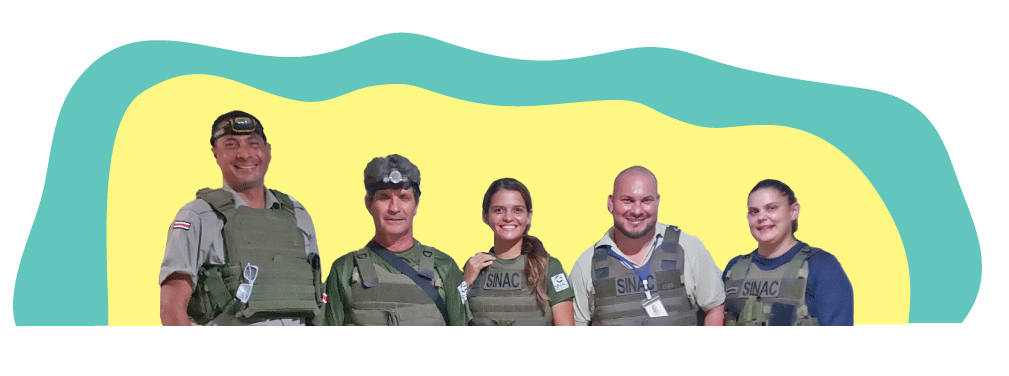
These conditions make it difficult for women to perform their duties effectively, compromising both their safety and well-being.
Reina Sánchez and Yocelin Ríos are two park rangers united by a shared
mission: protecting Costa Rica’s natural resources. Like many other female rangers, they balance their
passion for conservation with family life,
facing any challenges head-on.
Like her colleagues, she works 10-day shifts followed by 5 days off – a demanding schedule that challenges her to balance her two greatest passions: being a mother and safeguarding nature.
“I’m a park ranger mom with three children. When the strongest eruptions happened in 2016, I couldn’t go to the volcano because I was pregnant. I’ve missed many important moments with my kids, and they’ve had to adapt. It’s been hard, but I’ve made it work.”
Reina Sánchez
Administrator, Irazú Volcano and Turrialba National Parks
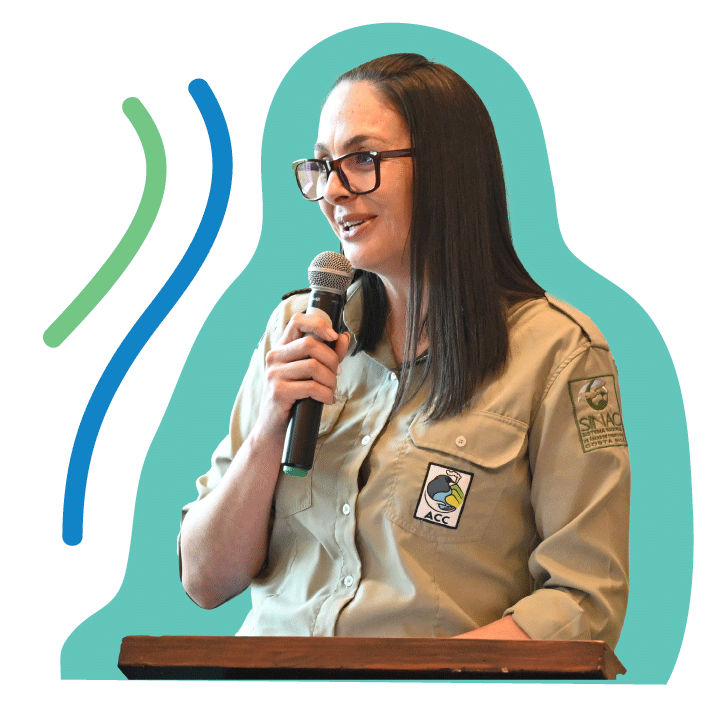
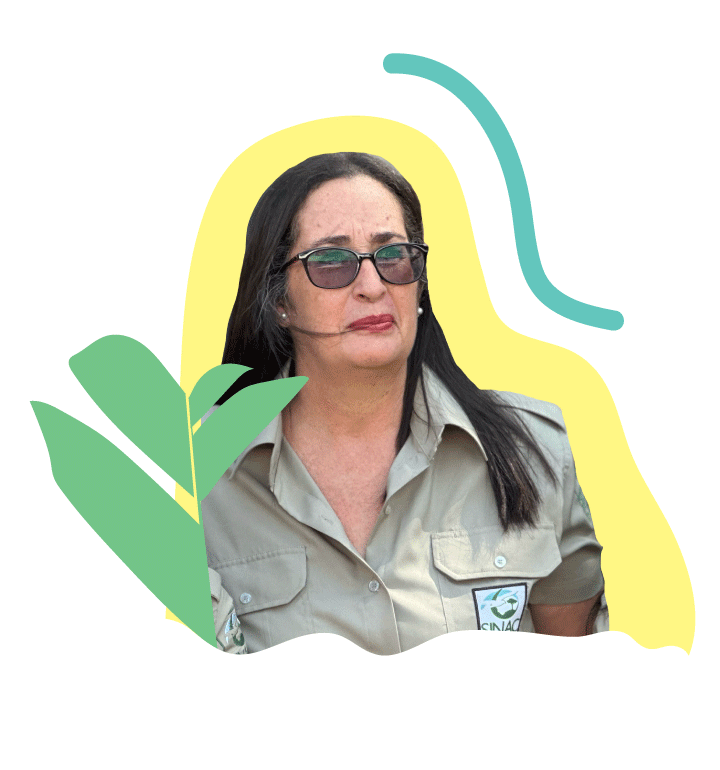
Her leadership has championed the integration of
gender equity into the management of Protected Wildlife Areas, paving the way for a more inclusive
and equitable conservation movement.
Her story, like those of many other female rangers,
highlights a key reality: to strengthen conservation, we must ensure equal opportunities.
Recognizing the need for a gender-responsive approach to biodiversity protection, Costa Rica advocated for the inclusion of an additional target in the Kunming-Montreal Global Biodiversity Framework (GBF) during negotiations at COP15 in Canada.
To advance this goal, the Ministry of the Environment and Energy (MINAE, from its acronym in Spanish) and SINAC, with support from German Development Cooperation GIZ, formed a partnership.
With support from SINAC and GIZ, 30 women park rangers came together to share their experiences, identify obstacles, and propose solutions that address inequalities while strengthening their role in biodiversity protection.
“Through these initiatives, we recognize and address the barriers to gender equity. I’ve always worked surrounded by men, but the support of other women is essential in the workplace. Finding a balance between conservation and equality is crucial.”
Reina Sánchez
Administrator, Irazú Volcano and Turrialba National Parks
This milestone sets a precedent within SINAC, paving the way for institutional gender equality and ensuring tangible progress in inclusive conservation efforts.
This committee is committed to creating spaces for dialogue, capacity building and strengthening, and institutional change in pursuit of gender equality. It acknowledges a historical debt to all the women whose rights have been impacted in one way or another.
Yocelin Ríos
Coordinator, Ad Hoc Gender Committee
Their work not only protects biodiversity, but also fosters a fairer and more equitable workplace for all SINAC employees.
As women, we contribute to biodiversity conservation from many perspectives. It’s an honor to be able to say that female park rangers are warriors – not with weapons, but with specific requests that reflect our lived experiences and those of countless others who have not had the chance to speak up. We are their voice.
Yocelin Ríos
Coordinator, Ad Hoc Gender Committee
ACCION Clima is funded by Germany’s International Climate Initiative (IKI).
Sources:
Photos:

Women Cultivating Agro-Landscapes
COSTA RICA
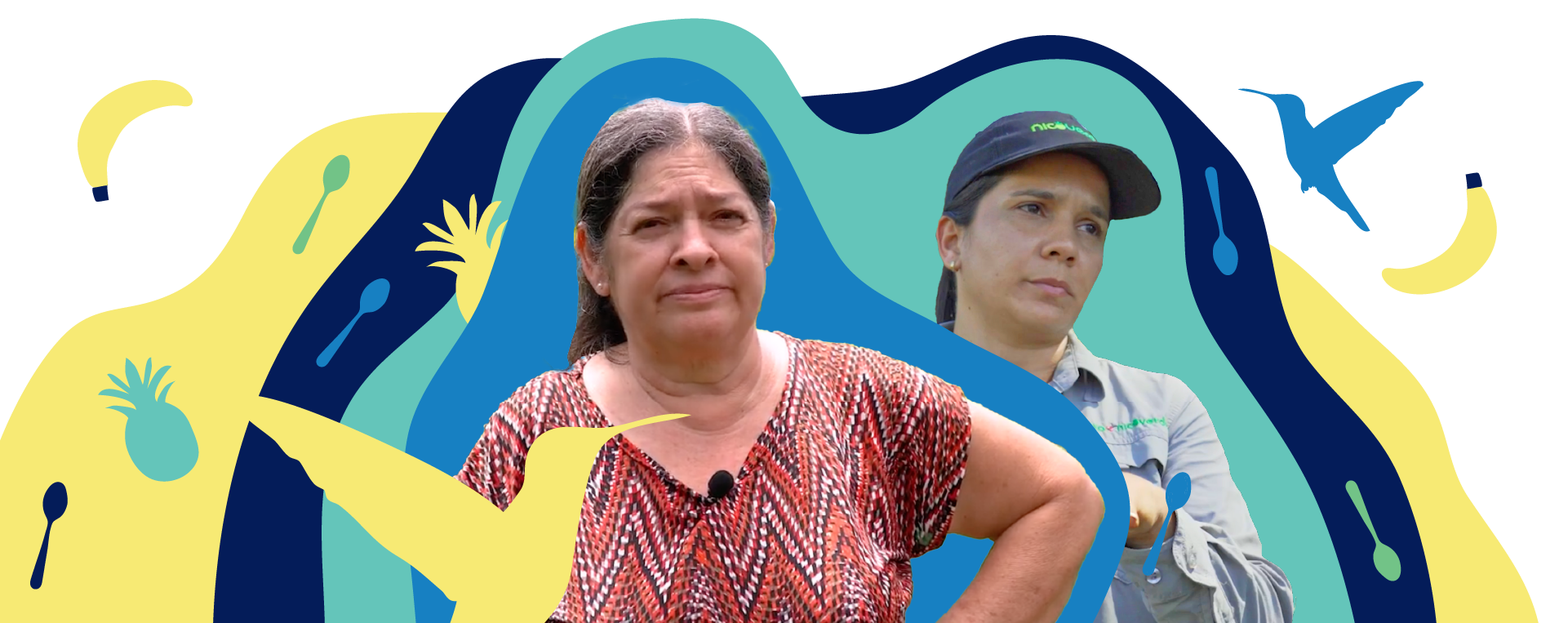
The situation is especially critical in developing countries, where 72% of plant and animal species are at risk due to unsustainable agricultural practices.
Achieving this harmony is
key to
ensuring a sustainable food supply, protecting the integrity of ecosystems, and securing the
survival of the species that depend on them.
Joselyn Rojas Varela is an agronomist at Nicoverde, a subsidiary of the Italian company Nicofrutta. The company owns three farms and collaborates with more than 100 small-scale pineapple producers in Costa Rica.
“One of the most tangible changes is that we guarantee the consumer a healthier product, produced with fewer chemicals and by implementing biological inputs for its management.”
Ing. Joselyn Rojas Varela
Nicoverde
Pital, Costa Rica
Joselyn and Nicoverde are actively involved in From Farm to Fork (CAP), a project by the German
Development Cooperation (GIZ) that integrates biodiversity conservation into banana and pineapple
production.
Through sustainable agricultural practices, such as using bioinputs and reducing
agrochemicals, the initiative promotes the preservation of natural capital and the enhancement of
ecosystem services, strengthening its sustainability and commitment to biodiversity.
Thanks to this innovation, Nicoverde and its suppliers have reduced conventional pesticide use by 80%, promoting a more sustainable and environmentally responsible production process.
Driven by CAP, the
Biodiversity Check Agricola (BCA) is a tool that encourages the development of action plans to
conserve biodiversity and promote the sustainable use of resources.
Nicoverde is part of
the 160 farms in the country that have implemented the BCA,
applying effective strategies to protect local biodiversity, enhance their productive practices,
and reduce their environmental impact.
With support from CAP and
GIZ, they developed PineApp, a mobile app for small-scale pineapple producers that optimizes input
use and promotes more sustainable practices.
“This tool allows producers to check certain active ingredients that can be used specifically in pineapple production and those that may or may not be restricted. The tool provides producers with biological alternatives that can replace the use of prohibited agrochemicals.”
Ing. Joselyn Rojas Varela
Nicoverde
Research to innovate:
biotechnology, circular economy, and soil regeneration.
From Farm to Fork also collaborates with organizations like the Rainforest Alliance and FairTrade Smallholder, encouraging them to adjust their standards and requirements to include biodiversity conservation in their certifications, with the goal of helping consumers make more responsible purchasing choices.
María Berrocal, a banana producer at Finca González Ríos, is also part of the project.
She has chosen to minimize her use of chemical herbicides, reviving traditional methods such as using machetes to clear the land.
“We benefit when consumers buy the products, we both help each other. They consume a healthier product and help us continue producing in this way. We’ve learned that it’s possible.”
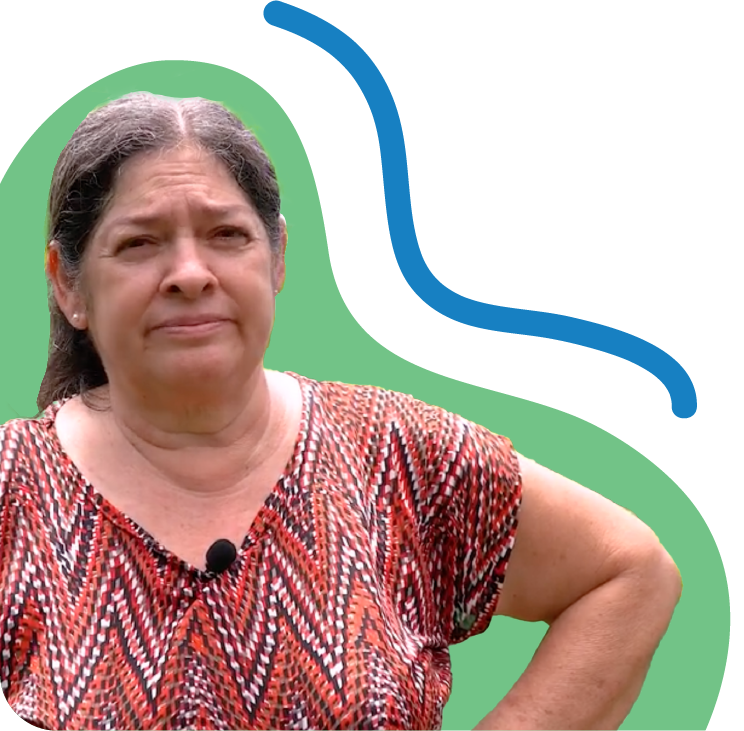
María Berrocal
Finca González Ríos
Costa Rica
Recovering the past to care for
the future: traditional practices for sustainable conservation.
For Joselyn and María, the From Farm to Fork project has been an opportunity to innovate and strengthen their farming practices, using biodiversity to improve crop health and reduce environmental impact.
From Farm to Fork: Biodiversity in the Agricultural Sector (Spanish)
This project is funded by the International Climate Initiative (IKI), with support from the German Federal Ministry for the Environment, Nature Conservation, and Nuclear Safety (BMUV).
Sources:
Photos:

Growing with Our Feet in the Mud
GUATEMALA
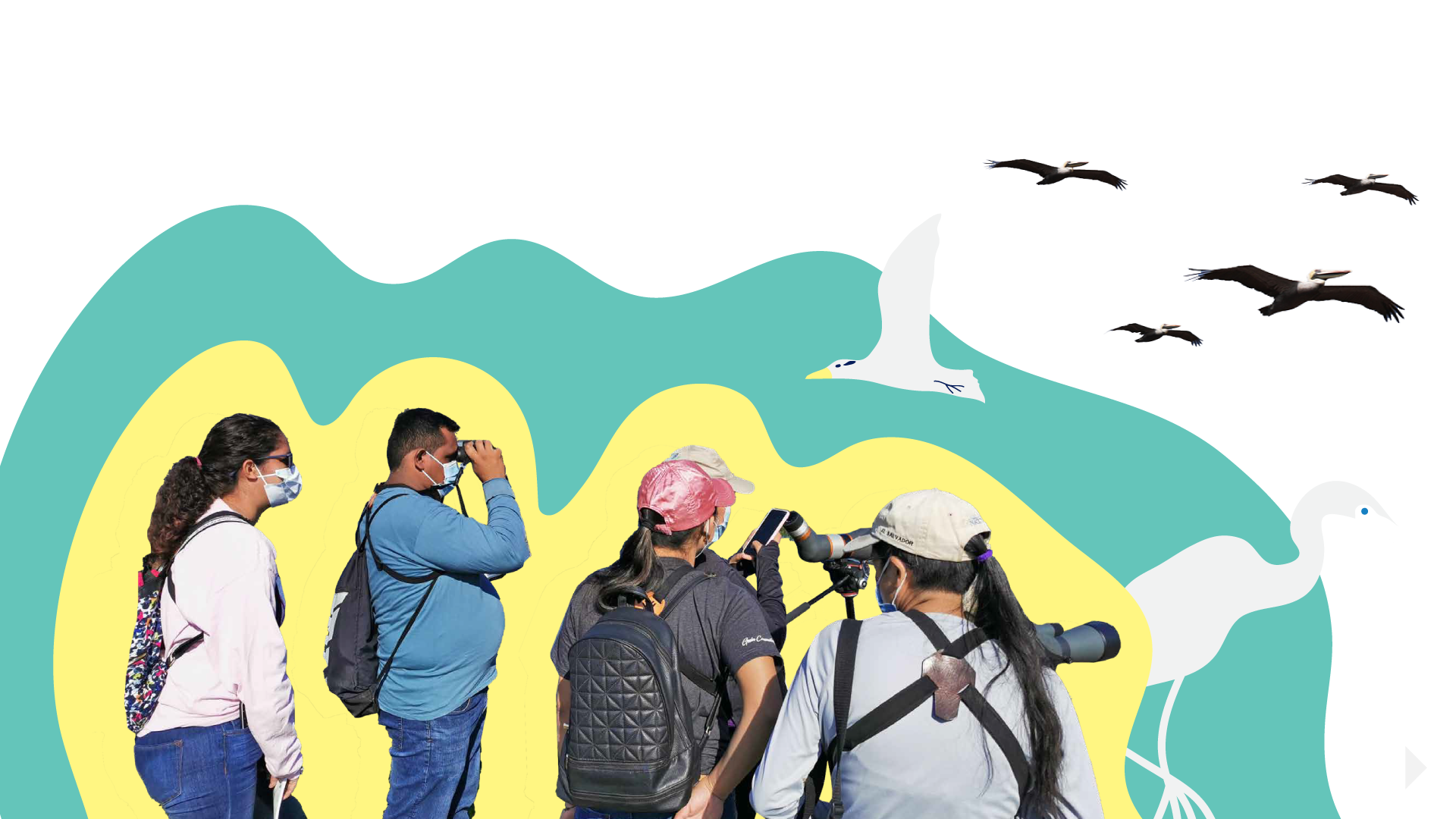
Ecosystems like mangroves,
peatlands, and seagrass meadows capture carbon up to 50 times faster than forests and can store up
to 5 times more carbon in their soil.
But this natural wealth is at risk. Since 1970, the world has lost 35% of its mangroves –
they’re disappearing at a rate 3 to 5 times faster than forests.
This loss threatens biodiversity and the communities that rely on these ecosystems.
These wetlands act as natural guardians, buffering ocean waves and storms – protecting coastal communities from flooding and property damage.
Wetlands play a crucial role in climate change mitigation and adaptation:
Yet despite this natural abundance, nearby communities live on the poverty line and rely on multiple economic activities to survive.
Like many young people in their community, they faced a difficult choice: stay or leave in search of better opportunities, after completing their studies.
Alongside 37 other young people, they trained as community guides. In the process, they not only discovered the park’s ecological and cultural wealth but also developed the skills to share its significance with the world. This experience deepened their connection to their community and opened new doors for their future.
They learned to identify and record the park’s 50
most common bird families using the eBird digital application. Their findings now contribute to
conservation efforts and provide crucial data to the National Council of Protected Areas (CONAP, from
its acronym in Spanish).
This process, facilitated by the Wildlife Conservation Society Guatemala and the Small Grants
Programme, marked the beginning of both personal and community transformation.
“I learned that there are 100 bird species here – both migratory and local. Before, I only knew of two or three.”
Celeste Yubiana Rodas Castañeda
Young Community Guide
Guatemala
But beyond this technical knowledge, they developed a new perspective on their surroundings – learning to value, protect, and see their environment as a source of opportunity.
“The conservation of species – both flora and fauna – is incredibly important because it benefits humans in one way or another.”
Lady Zulema Blanco
Young Community Guide
Guatemala
The project’s influence grew through initiatives like community-based
waterbird monitoring. This led to the creation of a birdwatching club, now consisting of 15 young
members who aspire to establish and lead an association in the future.
It also resulted in developing the first-ever Pacific Guatemala Bird Guide in Spanish, documenting
over 152 species and promoting conservation and sustainable tourism in the region.
Teachers, local leaders, and residents joined workshops and festivals, strengthening local pride and community commitment to protecting these wetlands. Thanks to their contributions, more than 200 people gained awareness around the importance of preserving these ecosystems and their biodiversity.
What we learn, we must share in our schools so that our children can understand the birds that live, mature, and reproduce in our country. This way, in the near future, most of our population will be educated about the care and protection of the different bird species found in our region.
Marcos Ariel Alvarado López
Young Community Guide
Guatemala
Their work goes beyond conservation: they are building a model where community development and environmental protection go hand in hand – proving that the future of wetlands and their communities is deeply interconnected.
This project proves that regions with high conservation value can be drivers of social and economic development, as they sustainably leverage environmental services like tourism, ensuring no one is left behind.
Ana María Díaz
Resident Representative, UNDP
Project profile in Sipacate-Naranjo National Park
Guatemala’s Pacific Bird Guide
Story: Guardians of the Wetlands
Global ICCA-GSI links in SGP website:
Phase 1 and COVID-19
Rapid Response Initiative
News: Germany supports nature conservation efforts of indigenous peoples and local communities
The Global ICCAs Support Initiative (ICCA-GSI) is funded by the Government of Germany through its Federal Ministry for the Environment, Nature Conservation, Nuclear Safety, and Consumer Protection (BMUV) and is implemented by the United Nations Development Programme through the GEF Small Grants Programme.
Sources:
Photos:

These different experiences teach us that protecting biodiversity and sustainably managing natural resources is not only a shared responsibility but a vital investment for our collective future.
In Central America and the Caribbean, IKI contributes to
sustainable development through funding for climate change mitigation and adaptation, biodiversity
conservation, and ecosystem protection.
The stories have been compiled by the ACCIÓN Clima project, as part of its mandate as IKI interface
project for the region.
Alternatively, contact our IKI interface project team at the following email:
iki.interfaz.cac@giz.deSources: